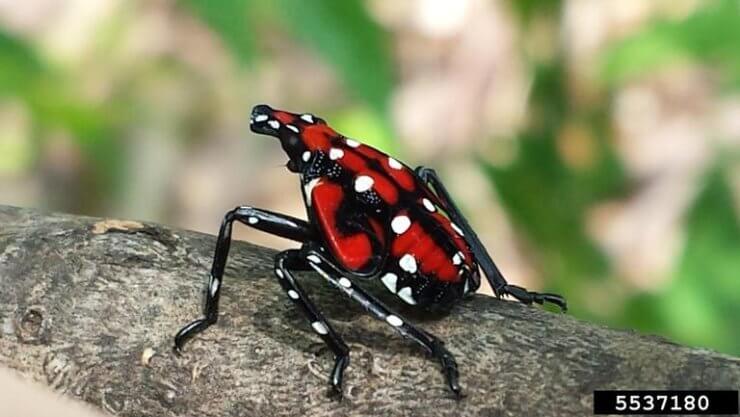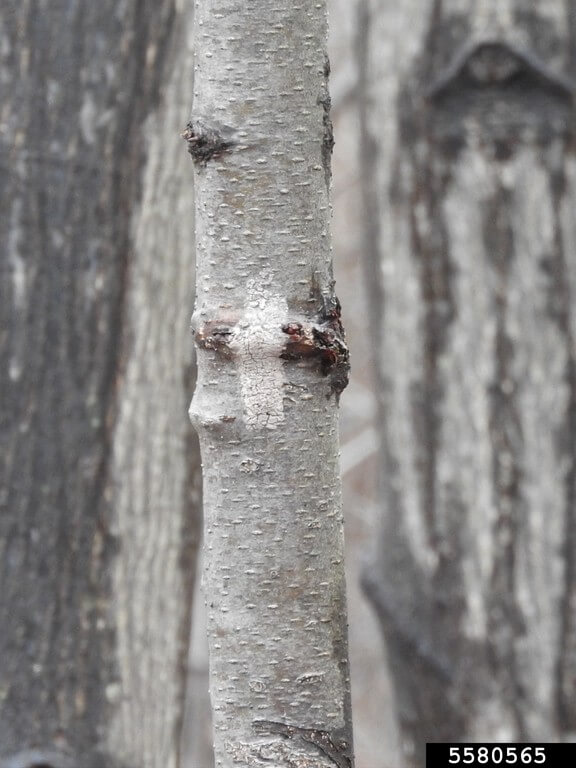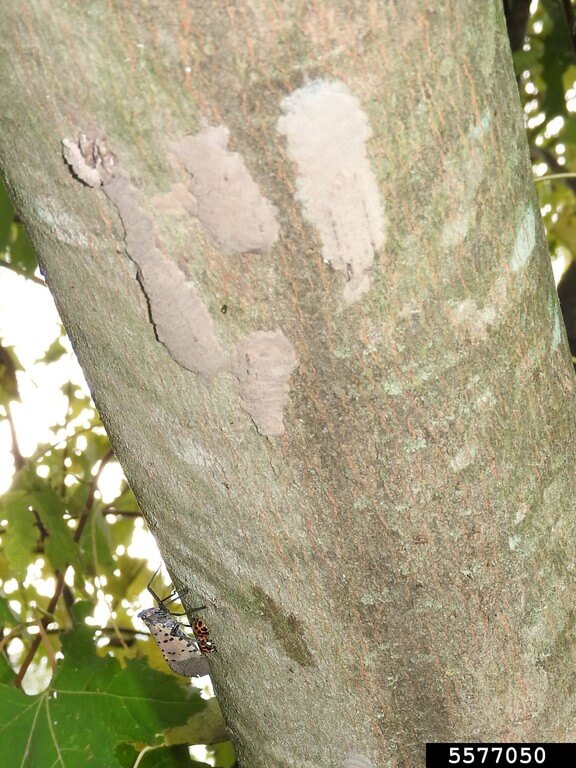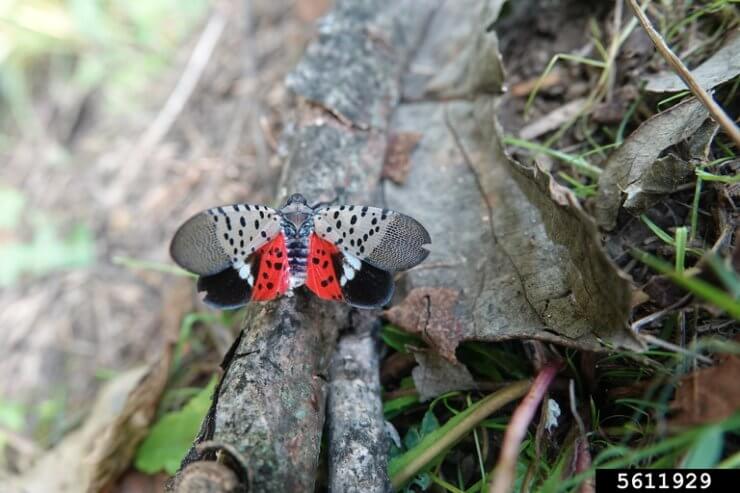
Lawrence Barringer, Pennsylvania Department of Agriculture, Bugwood.org
The Spotted Lanternfly looks like a moth to many, but is actually a leafhopper. In its adult form, it’s quite beautiful, which is part of the reason an invasive species can be so confusing. How can something so beautiful be a pest?
There have been many conversations about how this insect may affect industries like agriculture and timber, but not quite as many about what home gardeners may experience. Learn all you need to know about the spotted lanternfly (SLF) and what to do if you spot evidence of them in your garden.
Discover 7 top tips for growing, harvesting, and enjoying tomatoes from your home garden—when you access the FREE guide The Best Way to Grow Tomatoes, right now!
Will spotted lanternflies damage my plants?
An SLF’s favorite food is the sap from the tree of heaven (Ailanthus altissima). If you happen to have one of those in your garden, dig it up and destroy it. The tree itself is invasive and removing it will keep your garden from becoming a prime breeding spot for SLFs. However, like many invasive things, SLFs’ food sources are varied. They’ll happily feed on maples, some stone fruit trees, grapevines, black walnuts, and more.
Juvenile insects (nymphs) will feed from green, new plant tissue, while the mature insects can feed from thick, older growth. Typically, the nymphs don’t harm a plant much, but a large group of mature SLFs can cover a tree and do some real damage. They usually just weaken it, but sometimes they can end up killing a whole tree. This is especially the case for young trees.

Richard Gardner, Bugwood.org
What does spotted lanternfly damage look like?
These insects eat the sap from various plants. After they have left, you will find a sticky residue in their place. It’s called honeydew. Spotted lanternflies generally feed in a group, so there will be numerous little holes leaking that sticky pale yellow honeydew. If you see it, try to remove it. It attracts other pests and can end up turning into sooty mold, harming the plant. If you see a thick black material covering a plant, it is likely honeydew that has turned into mold.

Richard Gardner, Bugwood.org
Where are spotted lanternflies located?
According to the USDA, “Spotted lanternfly populations are in 17 States: Connecticut, Delaware, Illinois, Indiana, Kentucky, Maryland, Massachusetts, Michigan, New Jersey, New York, North Carolina, Ohio, Pennsylvania, Rhode Island, Tennessee, Virginia, and West Virginia.”
Will spotted lanternflies hurt me? Do they sting or bite?
No, they will not. SLFs do not sting or bite. There’s a common misconception about this because the honeydew they leave behind is sweet and attracts a number of stinging insects.

Rebekah D. Wallace, University of Georgia, Bugwood.org
How do I identify spotted lanternflies?
Learn all about identifying them in each stage of their lifecycle in this comprehensive article from Cornell.





https://www.mygardeninfo.com/
Very usefull info my some plants affect like this